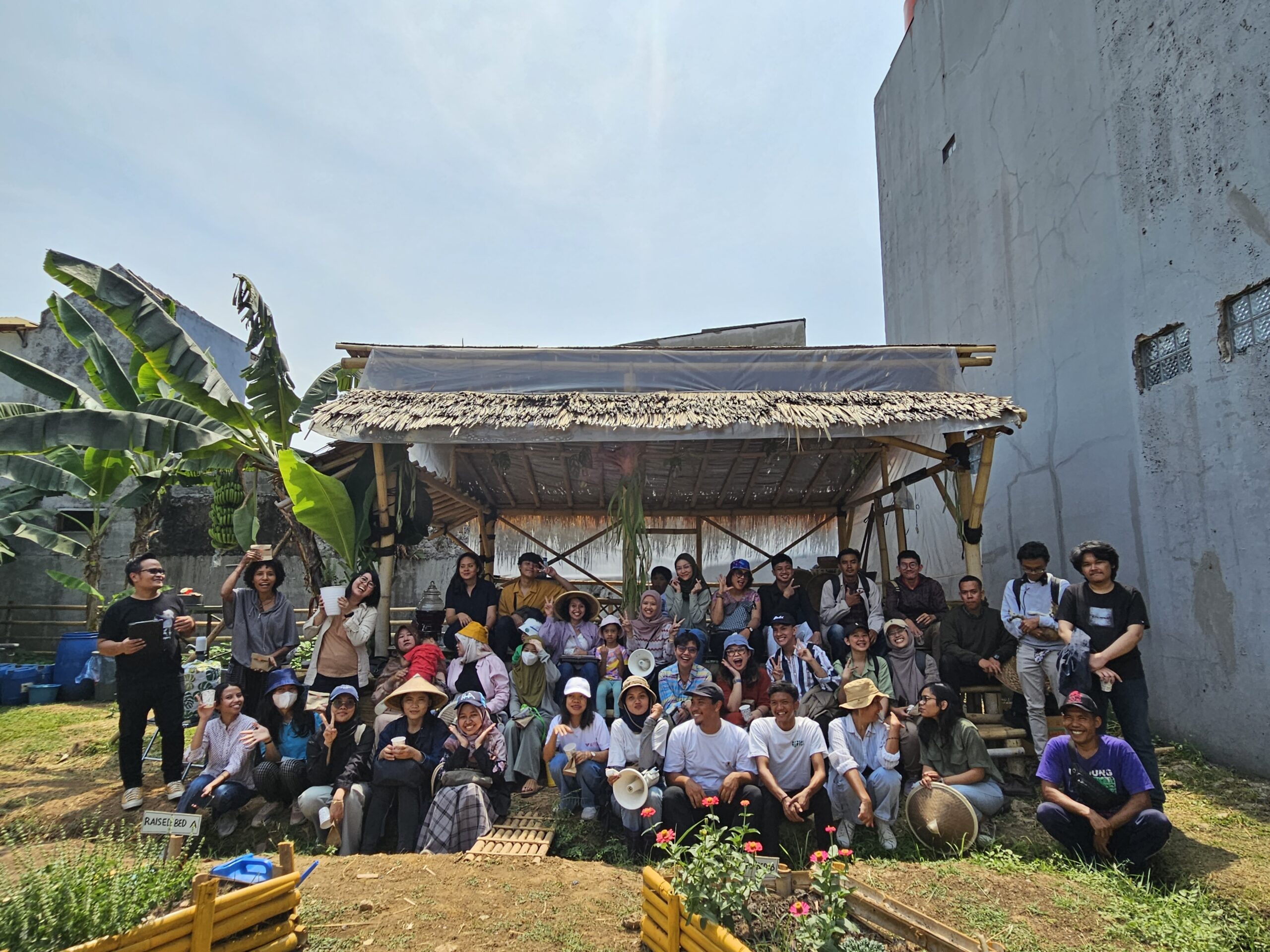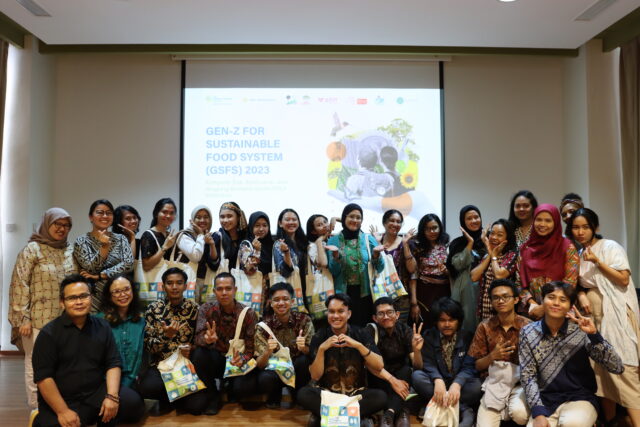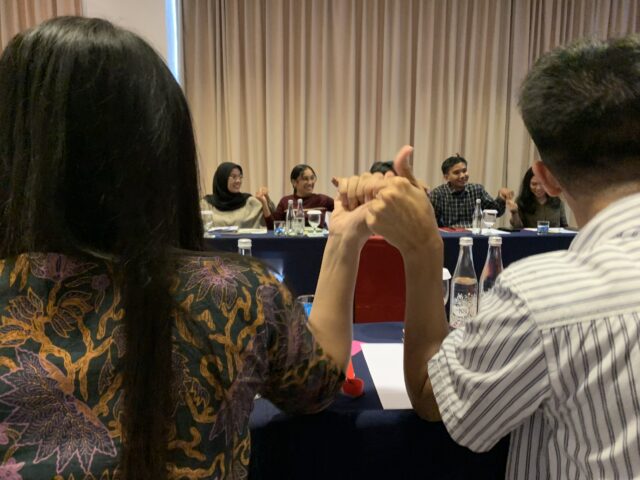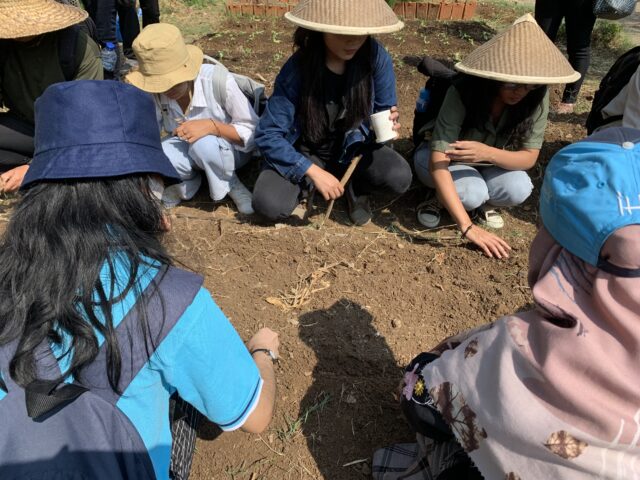
Climate Justice | September 22, 2023
Transitioning from Government Support to Grassroots Action: Exploring the Dynamics of Local Sustainable Food Initiatives
Humanis Foundation

During the Gen-Z for Sustainable Food System (GSFS) program organized by FOLU Indonesia from August to December 2023, the FOCUS project was actively involved in mentoring the next generation. Nisrina Nadhifah, the FOCUS Project Officer, and Fadilla Putri, the FOCUS Gender Equality and Social Inclusion (GESI) Specialist, played pivotal roles as mentors in Topic 1, which focused on “Fisherfolk’s Resilience to Food and Nutrition in the face of Climate Change.” Nisrina and Fadilla’s contribution was instrumental in guiding GSFS participants on this critical issue.
The GSFS initiative encompassed a wide array of activities, commencing with an engaging essay competition and progressing to an intensive bootcamp. One of the highlights of the bootcamp, which unfolded from 5th to 9th September 2023, was a fascinating field visit to two distinct urban farming communities in Bandung. These communities, namely Seni Tani and Buruan Sae Bima Mandiri, offered unique insights into sustainable food practices.
Seni Tani was initiated by a group of young individuals residing in a housing complex who shared a common goal of transforming unused land around the Overhead Power Line area into a thriving urban farm. Their innovative spirit and dedication demonstrated the power of community-driven initiatives in addressing food and climate challenges.
Conversely, Buruan Sae Bima Mandiri was borne out of the passion and commitment of retired civil servants residing in their housing complex. Their collective effort showcased that sustainability transcends age and background, as they actively contributed to sustainable urban agriculture practices.
These field visits not only enriched the GSFS experience but also underscored the diversity of approaches and the significance of community involvement in building resilient and inclusive sustainable food systems.
As previously mentioned, Komunitas Seni Tani places a strong emphasis on engaging and empowering young individuals who have a vital role to play in shaping the future of our food system. What sets this community apart is its robust adoption of the CSA (Community-supported Agriculture) system, which offers a unique and symbiotic relationship between consumers and farmers. In the CSA framework, consumers from diverse regions establish direct connections with local farming enterprises, subscribing to their produce, much like the subscription-based models employed by music streaming platforms. This arrangement ensures a steady and predictable income for the farmers, creating a win-win situation for both parties involved.
The essence of CSA transcends the typical ‘transactional’ relationships prevalent in supermarkets or e-commerce platforms. It fosters a deeper sense of community and responsibility, where consumers become stakeholders in the agricultural process. This not only ensures the availability of fresh, locally-sourced produce but also strengthens the bonds between those who grow our food and those who enjoy it.
Seni Tani understands that a thriving community does not necessarily need to step beyond its comfort zone. Instead, it can harness and integrate its diverse knowledge to flourish. Rather than isolating themselves from knowledge, these urban farmers actively seek out contextual wisdom that can be applied to the vacant plots of land before them. Their mission extends beyond self-sufficiency; it’s about empowering others, be it fellow farmers, curious teenagers, or residents in search of sustainable livelihoods.
However, discussions about knowledge inevitably intersect with issues of power and resources. The existence of initiatives Seni Tani is made possible because the initiators possess the necessary economic means to kickstart and sustain such endeavours. For instance, during periods of drought, they can still access water resources, often via an expensive subscription or through the use of specialized pumps. This access to resources underscores the reality that, in the realm of sustainable agriculture, economic privilege can sometimes be a critical factor in making positive change possible.

The connection between power and knowledge becomes clearer when we analyse Buruan Sae from this lens. This community initiative has received considerable support from the government, and its agricultural knowledge base owes much to the guidance provided by government-appointed facilitators. This advantage, however, can also be attributed to other forms of influence. The presence of retired government officials, who make up a significant portion of Buruan Sae, places them in a more privileged role compared to the average citizen.
These power dynamics within Buruan Sae have notable repercussions on their organizational structure, unveiling distinct forms of power at play. The division of labour within Buruan Sae reflects a hierarchy where men typically hold positions of greater authority compared to women. This hierarchy is rooted on the traditional roles often associated from the husband’s career rather than the wife’s, shaping the organizational structure accordingly.
This organizational structure inherits elements of ‘ibuism’ which primarily emphasizes women’s roles as mothers—a concept frequently employed during the New Order era in Indonesia (Suryakusuma, 2011). Notably, Buruan Sae is also closely connected to the PKK (Family Welfare Movement), which historically served as an instrument of ‘ibuism’ during the New Order period.
However, both Seni Tani and Buruan Sae share a common commitment to promoting sustainability, fostering an attitude of environmental concern and long-term planning. They confront diverse challenges, ranging from gaining acceptance among residents to contending with drought and addressing the complexities of post-harvest processes in urban farming. Collaboration and support from policymakers stand out as vital elements that cannot be ignored, underscoring the need to align interests and harmonize efforts with various stakeholders.
Through the insights gained from the field visit, it becomes evident that each region and context possesses unique values, dynamics, and needs. Managing communities engaged in food security issues necessitates not only courage and determination but also critical and analytical thinking from different perspectives and lenses. These considerations should extend to understanding the structural problems that surround these communities and identifying those most affected by these challenges.

Within the realm of urban agriculture, our focus can be directed toward practices like regenerative agriculture to restore soil health and optimizing vacant lands for productivity. While in marine and fisheries contexts, support systems can be established for fisherfolk and coastal communities, including women and youth, to enhance their bargaining power and resilience in the face of development threats and the climate crisis.
With this comprehensive approach, the hope is that our surroundings, both on land and in aquatic environments, will not only be places of refuge but also catalysts for positive change as we strive for a more sustainable and equitable future.
Photo credits: Nisrina Nadhifah and WRI Indonesia
Authors: Nisrina Nadhifah, Aurellia Putri, Asri Maulana, Karunia Haganta

